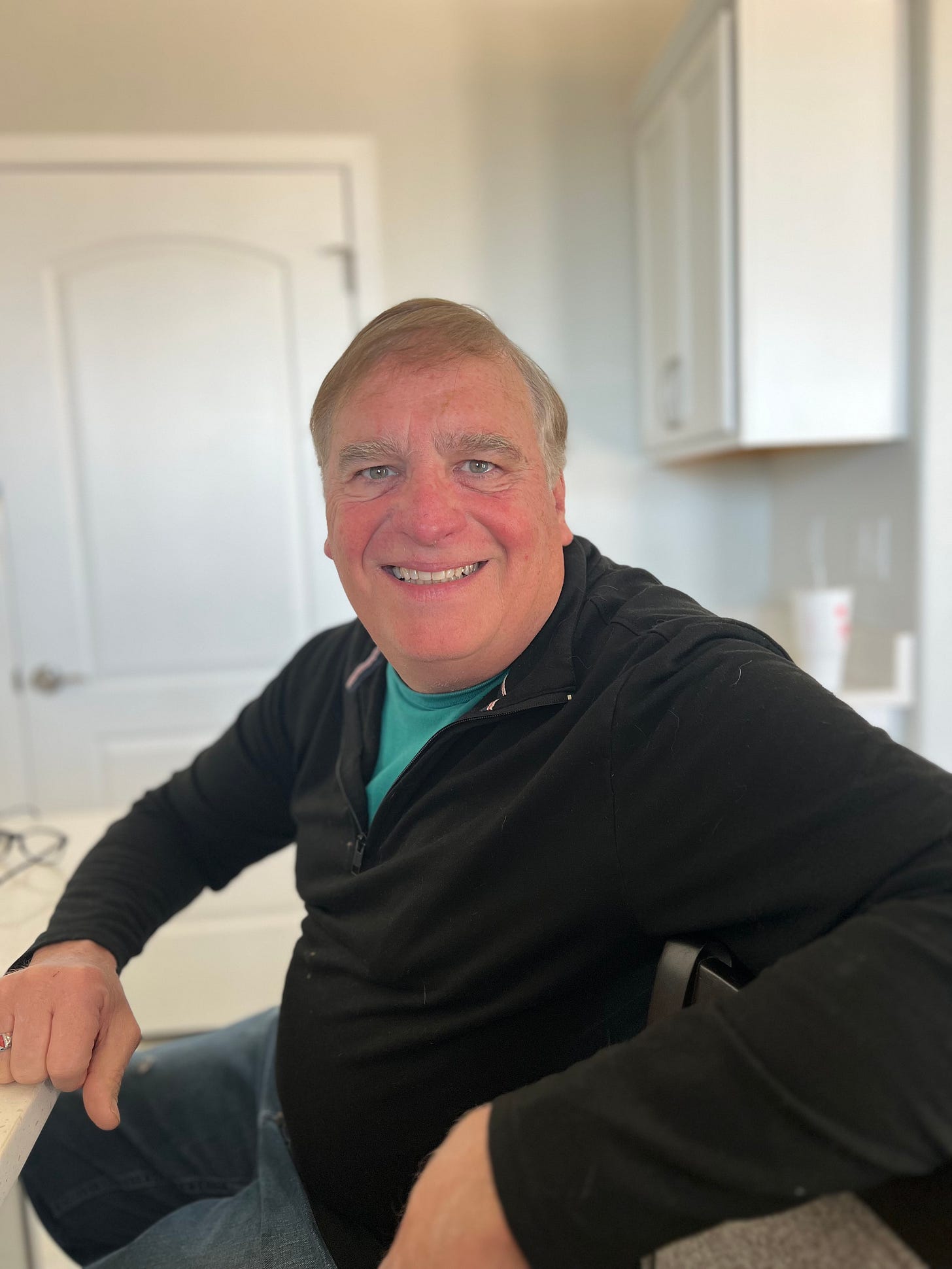The Kind of Man My Dad Is
Not loud, not performative—just present, honest, grounded. This is what positive masculinity looks like.

For My Dad, on Father’s Day
Most of the space on this Substack has gone to my Mom—and rightly so. Grief has a way of spiraling through everything, recursive and real. Writing through it has been healing, necessary.
But today, I want to tell you about my Dad.
We talked on the phone recently—almost an hour. I caught him up on everything happening in my life, and as always, he followed. I told him about my book (signing a publishing contract today), unmasked and excited, my thoughts pouring out in that fast, expansive way they do. And he kept up—not just listening, but being with me. That’s one of his superpowers. He has always been able to follow me.
My Dad is, without a doubt, one of the best listeners I’ve ever known. Always has been.
I’ve gone through some hard things—trauma, addiction, disorientation—and he showed up through all of it. There was a night, years ago, long before recovery, long before I realized I was autistic, when I was out of control and deeply vulnerable. And what did he do? He got up and sang karaoke with me. Not to save me. Not to fix me. Just to be with me. Just so I wouldn’t be alone in that moment. That’s the kind of man he is.
He’s a Navy veteran. His father—my grandfather—served in World War II. There’s a quiet lineage of strength in that, but not the kind of strength that needs to be loud or performative.
My Dad is an integrated human. He knows who he is. He’s strong, confident, grounded. I’d call him a model of positive masculinity—maybe even a blueprint.
He doesn’t manipulate.
He doesn’t exploit.
He listens.
He cares.
He shows up.
Together with my Mom, he raised three neurodivergent children—before we even had the language for it. Our household was often chaotic, as ND households are. But always—and I mean always—that chaos was met with unconditional love. No shame. No punishment for being different. Just a steady current of: we’re in this together.
We grew up in a conservative household. And I want to pause here for a second to say something about that. "Conservative" is often thrown around as a slur in progressive spaces, especially when it comes to neurodivergence. But in the '80s and '90s, it meant something else. It meant structure. Stability. Family. It didn’t necessarily mean rigidity or rejection.
My family was conservative—and also deeply loving. These things can coexist.
It frustrates me how often people undercut men like my Dad. There’s a tendency I’ve noticed—to flatten people into categories based on political affiliation and then assign them a moral scorecard. But you don’t know my Dad. You don’t know what it means to grow up in a household where love, respect, and integrity were taught by example.
Anyway—back to our recent phone call.
When I gave him a full-on infodump about my book, the conversation veered into RFK Jr., and he asked me:
“Why have autism rates gone up so much?”
So I gave him the full ten-minute historian-style breakdown. I told him about diagnostic expansion, awareness, shifting criteria—about how our understanding of autism has evolved over time.
And he just said:
“Oh, so we just know more about autism now.”
That was it. No resistance. No ego. Just understanding.
We talked more—about genetics, about his traits and those of his brother. We talked about how many men like them—quiet, steady, undiagnosed—are absolutely, undeniably autistic. They may never take on the label. But they’ve lived the experience. And they’ve held families together all the same.
Toward the end of our conversation, I told him I had it on my calendar to send him a card—and still forgot. His response?
Just honest and humble:
“That was your Mom’s thing.”
And then:
“Cards are like—you read them once, then throw them away.”
It wasn’t dismissive. It was deeply him.
What he was really saying is: presence matters more than Hallmark.
And that’s always been his way.
Not the showy gesture.
Not the perfectly timed message.
Just showing up—again and again.
So, today I want to say:
Thank you, Dad.
Thank you for being someone I can always call.
Thank you for your quiet strength and steady presence.
Thank you for showing me what love looks like—without needing to name it.
You’re not just my father.
You’re someone I look up to.
And on this Father’s Day, I want the world to know it.




Your dad sounds SO much like my dad. What a gift.
I loved this story--very heartwarming. Thank you for sharing 🙏